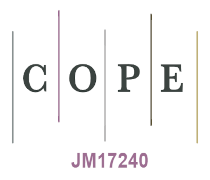Organizational climate as a kind of resources in the process of coping with stress- comparative research in Polish and German workers
DOI:
https://doi.org/10.18778/1427-969X.11.11Keywords:
organizational climate, psychological resources, coping with stress, coping strategyAbstract
Presented paper deals with the dependency between organisational interpersonal atmosphere in organisations and coping strategies, used by polish and german workers. There were 30 Polish and 30 German subjects, representing three kinds of business companies: commercial, concerning computer technology and productive. The methods were Kolb’s Questionnaire for Organisational Atmosphere and Coping Inventory of Stress Strategy by Endler and Parker, both in Polish or German linguistic version. The results suggest that there is certain difference between Polish and German workers: the former are used to apply coping strategies, which are appropriate to the perceived organisational weaknesses, the latter – mostly use strategies directed towards the emotional discomfort and tension. Surprisingly, the Poles who are functioning in well organised office are motivated to use mainly emotional (and avoiding) strategies, what may be understood as a result of weak identification with the organisation.
References
Aarons G. A., Sawitzky A. C. (2006), Organizational Culture and Climate and Mental Health Provider Attitudes Toward Evidence-Based Practice, "Psychological Services", 1, 3, 61–72
Google Scholar
DOI: https://doi.org/10.1037/1541-1559.3.1.61
Alichniewicz K. (2006), Kultura organizacyjna a strategie radzenia sobie ze stresem, Uniwersytet Łódzki, nieopublikowana praca magisterska
Google Scholar
Buch M. (2002), Stressoren aus organisatorischen Bedingungen – Entwicklung und Evaluation eines personunspezifischen Arbeitsanalysemoduls, Institut für Arbeitswissenschaft der Universität Kassel, Kassel, Dissertation
Google Scholar
Campbell E. A. (2004), The psychological assessment of occupational stress for civil litigation: Issues of causation, injury, foreseeability and the duty of care, European Academy of Occupational Health Psychology, Oporto
Google Scholar
Chełpa S. (1993), Walidacja Kwestionariusza Klimatu Organizacyjnego Kolba, "Przegląd Psychologiczny", 36, 3, 379–387
Google Scholar
Dobrzyński M. (2006), Kierowanie kadrami, PWE, Warszawa
Google Scholar
Gładkiewicz D. (2005), Organizacyjne uwarunkowania występowania mobbingu zawodowego, Uniwersytet Łódzki, nieopublikowana praca magisterska
Google Scholar
Greif S. (1991), Stress in der Arbeit – Einführung und Grundbegriffe, [w:] S. Greif, E. Bamberg, N. Semmer [Red.], Psychischer Stress am Arbeitsplatz, Hogrefe, Göttingen
Google Scholar
Hofstede G. (2000), Kultury i organizacje, Polskie Wydawnictwo Ekonomiczne, Warszawa
Google Scholar
Karasek R. A. (1979), Job demands, job decision latitude, and mental strain: Implications for job redesign, "Administrative Science Quarterly", 24, 285–306
Google Scholar
DOI: https://doi.org/10.2307/2392498
Lazarus R. S. (1986), Paradygmat stresu i radzenia sobie, "Nowiny Psychologiczne", 34, 2–39
Google Scholar
Lazarus R. S. (1991), Psychological stress and the coping process, McGraw–Hill, New York
Google Scholar
Lazarus R. S., Folkman S. (1984), Stress, Appraisal and Coping, McGraw–Hill, New York
Google Scholar
Ratajczak Z. (2000), Stres – radzenie sobie – koszty psychologiczne, [w:] I. Heszen-Niejodek, Z. Ratajczak (red.), Człowiek w sytuacji stresu, Wydawnictwo UŚ, Katowice
Google Scholar
Sarp N., Schein E. H. (1985), Organizational Psychology, Prentice–Hall, Englewood Cliffs (NY)
Google Scholar
Schroll-Machl S., Wiskoski K. (2003), Deutsche und Polen – Verstehen und verstanden werden. Interkulturelle Komunikation im deutsch-polnischen Geschäftsalltag, OWC – Verlag für Außenwirtschaft GmbH, Frankfurt am Main
Google Scholar
Sikorski C. (2006), Kultura organizacyjna, C.H. Beck, Warszawa
Google Scholar
Strelau J., Szczepaniak P., Wrześniewski K. (1996), Diagnoza stylów radzenia sobie ze stresem za pomocą polskiej wersji kwestionariusza CISS Endlera i Parkera, "Przegląd Psychologiczny", 39, 1, 187–210
Google Scholar
Thomas A. (2003), Kulturvergleichende Psychologie, Vandenhoeck & Ruprecht, Göttingen
Google Scholar
Ward C., Bochner S., Furnham A. (2001), The psychology of culture shock, Routledge, London
Google Scholar
Widerszal-Bazyl M., Cieślak R. (1999), Monitorowanie stresu psychospołecznego jako element zarządzania organizacją, "Ergonomia", 22, 13–35
Google Scholar
Downloads
Published
How to Cite
Issue
Section
License

This work is licensed under a Creative Commons Attribution-NonCommercial-NoDerivatives 4.0 International License.








